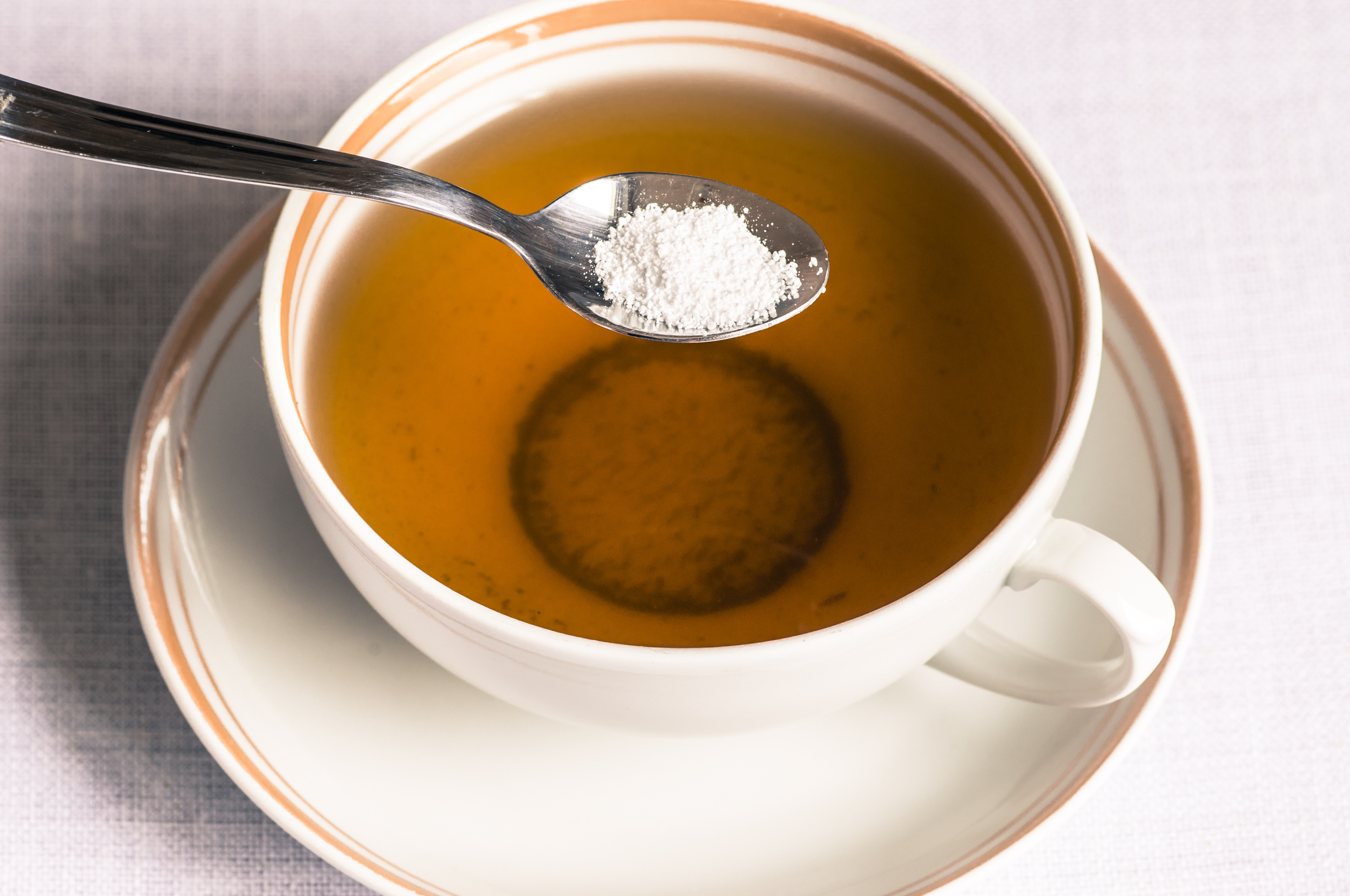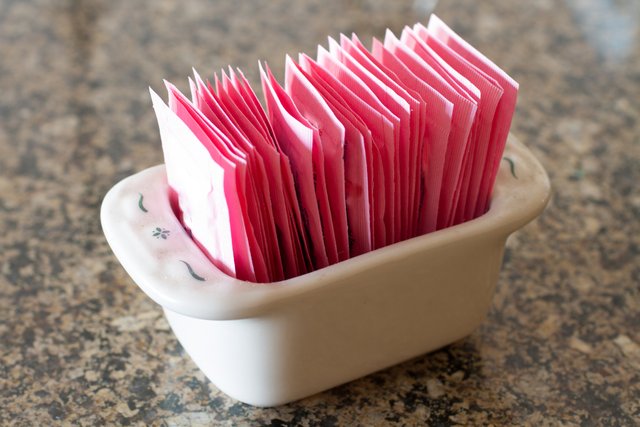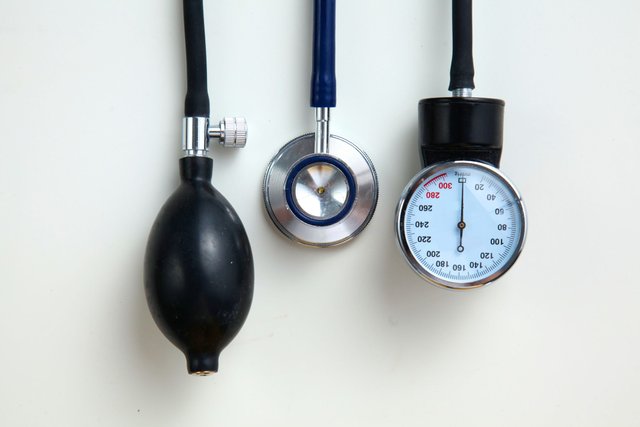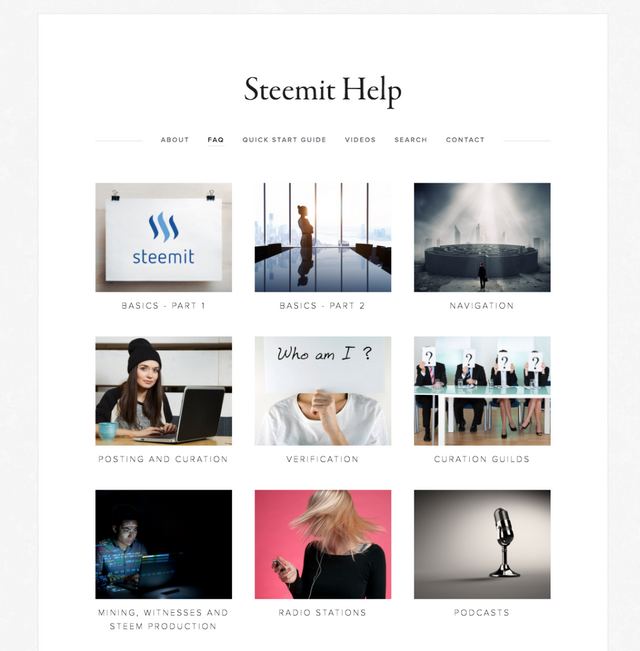Artificial Sweeteners May Increase Risk of Stroke and Dementia

Introduction

You may have read a few studies recently that suggest that artificially sweetened drinks may increase the risk of developing diabetes [1] and obesity [2].
A new study in the journal "Stroke" by Pase et al [3] suggests that artificially sweetened drinks increase stroke and dementia risk.
You can read the abstract and download the full study as a PDF here.
Methods
This is a prospective cohort study. This basically means that a group of people were followed up over a period of time to see if they developed certain illnesses (dementias and stroke in this case).

In this case subjects were used from something called the Framingham Heart Study Offspring Cohort:
The Framingham Heart Study comprises a series of community- based prospective cohorts originating from the town of Framingham, Massachusetts. We studied the Framingham Heart Study Offspring cohort, which commenced in 1971 with the enrolment of 5124 volunteers. Participants have been studied across 9 examination cycles approximately every 4 years, with the latest cycle concluding in 2014.
The subjects were assessed for their drinks intake using a standardised questionnaire called the Harvard Semi-quantative Food Frequency Questionnaire (FFQ) and followed up to see if they developed dementia or stroke.
For reasons of brevity I can't cover the methods in details so please take a look for yourself if you are interested.
Results

There is a lot of data displayed in Tables 2 and 3 of this study.
Of particular interest here is the fact that when it comes to sugary drinks none of the results reach statistical significance, suggesting a lack of association between sugary drinks consumption and both dementia and stroke (see discussion below).
I have summarised the findings for cumulative intake below to give an illustration of some of the figures involved here as there is no headline figure as such and it can be hard to understand the data.
Table A - Hazard Ratios for Cumulative Artificial Sweetener Intake
| AS Drink Freq | All Stroke | Ischaemic Stroke | All Dementia | Alzheimer's |
|---|---|---|---|---|
| Model 1 | ||||
| >0–6/wk | 1.75 | 2.2 | NS | NS |
| ≥1/d | 1.96 | 2.82 | 2.28 | 2.48 |
| Model 2 | ||||
| >0–6/wk | NS | 2.62 | NS | NS |
| ≥1/d | NS | 2.96 | 2.47 | 2.89 |
| Model 3 | ||||
| >0–6/wk | NS | 1.98 | NS | NS |
| ≥1/d | NS | 2.59 | NS | NS |
NS = not statistically significant, i.e. P-value>0.05; Model 1, 2 & 3 refer to different models of covariate control - see Table B
Table B: Different Covariate Models Used
| Model 1 | Model 2 | Model 3 |
|---|---|---|
| Age | Age | Age |
| Sex | Sex | Sex |
| Total Caloric Intake | Total Caloric Intake | Total Caloric Intake |
| Dietary Guidelines Adherence Index | Systolic BP | |
| Self-reported Physical Activity | Treatment of BP | |
| Smoking Status | CVS disease | |
| Atrial Fibrillation | ||
| LVH | ||
| T. Cholesterol | ||
| HDL Cholesterol | ||
| Diabetes | ||
| Waist:Hip Ratio |
Discussion of Results
As you can see many of the results are listed as NS which means that they do not reach statistical significance (using the less than 0.05 P-value figure).
.jpg)
The overall trend is that there is a hazard ratio (HR) of between 1.5 to 3.0 for consumption of artificially sweetened drinks. This quite simply means that the risk of developing illness is 1.5-3.0 times higher.
So in Table A if your cumulative consumption of artificial sweeteners is greater than one per day, then your risk of developing Alzheimer's disease is 2.89 times those who do not consume any artificially sweetened drinks.
The results for recent consumption (not shown) are similar for stroke with smaller P-values (meaning they are more significant).
Interestingly the results for recent consumption and dementia are only significant in one case (consuming greater than once per day).
In some respects we would expect this - a stroke is an acute and sudden condition, whereas dementia builds up over time and is a more progressive disorder.
This is the commonest used standard and what it basically means is that there is a less than 5% chance that the results occurred due to chance.
There is considerable variation depending on the different models used to control for confounding factors (covariates) - again this is to be expected and I have listed these in Table B.
Problems
I think there are a lot of factors that we need to take into consideration with this study:
Sugary Drink Anomaly?

Firstly this study DID NOT find an association between sugary drinks consumption and stroke or dementia.
This is rather strange and would seem contrary to current prevailing wisdom and indeed evidence - the authors cite studies in their discussion that contradict this [4,5].
Our observation that artificially sweetened, but not sugar- sweetened, soft drink consumption was associated with an increased risk of stroke and dementia is intriguing. Sugar- sweetened beverages provide a high dose of added sugar, leading to a rapid spike in blood glucose and insulin, providing a plausible mechanism to link consumption to the development of stroke and dementia risk factors.
Rather than just being intriguing it suggests to me that there may be some underlying problems here that are skewing the results.
Accuracy of Questionnaires for Data Collection?

Another major problem with this study is the use of questionnaires to define drinks intake.
One must question how accurately people can report their consumption when using such questionnaires?
From personal experience I know that people are quite bad at quantifying their intake of food and drinks and this is likely made worse when you expect them to recall it over long periods of time.
The questionnaire also makes no distinction between different types of artificial sweetener - it may be that some are worse than others and right now we have them all lumped into one group.
Further the data is displayed using multiple models of adjustment for confounding variables - whilst this may have some advantages it increases the amount of data presented and can make the information rather confusing to follow.
Is the Covariant Snapshot Accurate?

All covariates were obtained from examination cycle 7. We report Models 2 and 3 as our primary analyses (please see Tables I and II in the online-only Data Supplement for Model 1 results).
Obviously for certain variables this does not matter so much as they do not vary, but certain parameters such as blood pressure, caloric intake etc may change significantly and this could lead to skewing of the data.
Use of Two Different P-values

We considered results statistically significant if a 2-sided P<0.05, except for tests of interaction which were considered statistically significant if a 2-sided P<0.1.
The normal convention is to use 0.05 as the P-value cut-off. Perhaps I have not read enough papers but this is one of the first times I have noticed the use of 2 different values.
I don't understand statistics well enough to say if it is acceptable to do this when testing interaction so please let me know if this is standard practice or you are more familiar with it.
Funding Conflicts?

Funds from the USDA Agricultural Research Service Agreement No. 58-1950-4-003 supported in part the collection of dietary data for this project and the efforts of Dr Jacques. Department of Medicine and Evan’s Foundation’s Evans Scholar Award to Dr Vasan.
I think we should always be wary of where the funding comes for with research, particularly when there are unusual findings.
Would there be a reason for the USDA to find that (contrary to other research) sugary drinks do not increase disease risk whereas artificial sweetened ones do?
It does seem rather odd.
There are more points too but this is already getting too long.
Mechanism
There are multiple mechanisms which may explain the phenomenon here in relation to artificial sweeteners.
The most commonly discussed theory (which I have also seen in previous research) is that artificial sweeteners alter the gut microbiota.
.jpg)
These are the bacteria that live in your bowels and have been implicated in many types of illnesses in recent years.
These changes may directly cause dementia/stroke, or they may cause other diseases such as diabetes and obesity, which increase your risk of dementia and stroke.
I have also previously heard discussion that there may be a direct effect on insulin and blood glucose as a result of artificial sweeteners as they may fool your body's sugar sensing mechanisms.
Somewhat consistent with these points is the finding that the researchers found a higher prevalence of diabetes in those who consumed artificially sweetened drinks.
Finally a further factor that is hinted at in the study is that they may affect blood pressure - high blood pressure is a large risk factor for stroke and may also be involved in certain types of dementia.
It would be interesting to study these mechanisms in a more isolated manner to figure out what is actually going on and which ones are more relevant.
Conclusion
Despite the problems outlined in this study I think it is still wise for us to review and limit our intake of artificial sweeteners.

Whilst the data on sugary drinks do not really fit with previous research, this is not true about the evidence for artificial sweeteners.
This study adds to previous evidence [4,5] suggesting that consumption of artificially sweetened drinks increases the risk of stroke and dementia.
This may be due to changes in the gut microbiome and/or related metabolic factors.
In future research it would be useful to see how different artificial sweeteners compare to each other in terms of risk and outcomes.
Are they all equally bad? This study cannot tell us that.
I have kept this as short as possible to make it easy to read but I would recommend for those who are interested in the subject to read the actual study. It is likely there are some things I have missed that may be relevant.
For example I would love a more expert opinion on the statistical analysis used here - (e.g. lots of non significant results, uses of 2 different P values etc).
As always let me know what you think in the comments.
Thank you for reading

References
Fagherazzi, Guy, Gaëlle Gusto, Aurélie Affret, Francesca Romana Mancini, Courtney Dow, Beverley Balkau, Françoise Clavel-Chapelon, Fabrice Bonnet, and Marie-Christine Boutron-Ruault. 2017. “Chronic Consumption of Artificial Sweetener in Packets or Tablets and Type 2 Diabetes Risk: Evidence from the E3N-European Prospective Investigation into Cancer and Nutrition Study.” Annals of Nutrition & Metabolism 70 (1): 51–58.
Ruanpeng, Darin, Charat Thongprayoon, Wisit Cheungpasitporn, and Tasma Harindhanavudhi. 2017. “Sugar and Artificially-Sweetened Beverages Linked to obesity:A Systematic Review and Meta-Analysis.” QJM: Monthly Journal of the Association of Physicians, April. doi:10.1093/qjmed/hcx068.
Pase, Matthew P., Jayandra J. Himali, Alexa S. Beiser, Hugo J. Aparicio, Claudia L. Satizabal, Ramachandran S. Vasan, Sudha Seshadri, and Paul F. Jacques. 2017. “Sugar- and Artificially Sweetened Beverages and the Risks of Incident Stroke and Dementia.” Stroke; a Journal of Cerebral Circulation, January. American Heart Association, Inc., STROKEAHA.116.016027.
Bernstein, Adam M., Lawrence de Koning, Alan J. Flint, Kathryn M. Rexrode, and Walter C. Willett. 2012. “Soda Consumption and the Risk of Stroke in Men and Women.” The American Journal of Clinical Nutrition 95 (5): 1190–99.
Gardener, Hannah, Tatjana Rundek, Matthew Markert, Clinton B. Wright, Mitchell S. V. Elkind, and Ralph L. Sacco. 2012. “Diet Soft Drink Consumption Is Associated with an Increased Risk of Vascular Events in the Northern Manhattan Study.” Journal of General Internal Medicine 27 (9): 1120–26.

Hello @TheCryptoFiend,
Congratulations! Your post has been chosen by the communities of SteemTrail as one of our top picks today.
Also, as a selection for being a top pick today, you have been awarded a TRAIL token for your participation on our innovative platform...STEEM.
Please visit SteemTrail to get instructions on how to claim your TRAIL token today.
If do not wish to be promoted by SteemTrail, please reply with "Stop" to opt out.
Thank you:)
Aspartame & many other artificial sweeteners are carcinogenic and have been linked to serious neural disorders.
The fact is artificial sweeteners are not sweet, they lie you, and if you can't discern if your food is real or fake you are already ill. Same with all this sweet cattery everywere :) hehe
Wow, my friend! What a magnificent post! Thank you for sharing this information with us.
I am from consuming sweetener and I have relatives with diabetes. So this topic really interests me. My genetics do not suit me. I think it also depends on the quantities one consumes. It is necessary to be measured when one ingests these supplements.
Thanks for the input. I hope you have a good weekend. Big hug.
Thanks mate! I think those of us who have genetics that predispose to diabetes should perhaps be more wary despite the problems with this particular study.
@thecryptofiend very very interesting post and yes..
word on this .. I don't use those btw :D
I cut back on all types of sugar .. saves me from wrinkles and having memory lapses
but not everyone has the same needs specially those who are used to it or have diabetes. We can't tell them don't take anything with sugar cause that's not going to do them good.
there's a resto in the UK that uses the miracle fruit , they let people eat a table spoon of it first and everything they put in their mouth tastes - balanced sweet even if there's no sugar on it so that resto never used sugar so I wonder why so many food chemist don't do anything about reproducing that powdered miracle fruit. I also read that that miracle fruit does something to the part of the tongue that's responsible for tasting the sweet stuff - so I wonder if it would actually have a catch later.
Thank you for resteeming my post and for all your support. The world doesn't know how much you have been marketing Steemit in Twitter . Whenever I on my wifi on the phone - your retweets flood :D
You're freaking supportive to the many of us!!! Thank you big heart man!
You're welcome:)
I agree 100%. I, for example, do not consume so much sugar or sweetener. I use stevia. Also I not eat common rice, I eat integral. And I try to take care of the amount of salt and soda. But a giant hamburger from time to time does not hurt anyone, haha
Artificial sweeteners drive me nuts. I won't let my kids have them at all (I also don't really let them have too much sugar either... but never artificial). It is currently illegal in my state for schools to have sodas with sugar or corn syrup... but they can contain all the artificial sweeteners and salt in the world. It really bothers me that we are making it seem like these things are healthy. Not sure who lobbied for this...
Some people have suggested that the current epidemic of obesity and metabolic disorders in children may be related to the use of artificial sweeteners.
I would not be surprised. Our bodies aren't made to process that garbage.
I thought everybody would know this by now
Nice and helpful article as usual
Thank you!
I love my Stevia!
Someone promoted your post. Promotions help every steemians.
Your reward is an upvote and 0.235 SBD extra promotion.
Good job, see you next time in
Promoted! ;)Great post. Now I know where Trump went wrong.
Lol.
Thanks for this article. Loved to read especially your comments on it. Glad they found a sort of medicine to, for now pause, dementia. In research you can use p-value .5 & .1. A p-value<.5 is used in most studies and seen as significant (5% out of 100% chance that your result is incorrect), if you have p-value<.1 then your results are super significant :-) So, even more chance you are superright (or not).
Thanks - yes I know how P-values work - I just haven't seen two different ones used in the same study before! Seems a bit odd.
oh sorry! Yes, seems odd. Probably they want to show that it's even significant at p<.1?
At P 0.1 it would be less significant though because that represents 10% probability of results being due to chance as opposed to 5% for 0.05 as I understand it.
hahaha, you are so right! Stupid me, I was thinking in P .01. Maybe I can hide behind the fact that I just woke up from a powernap? ;-)
Don't worry I think we all get fooled by it sometimes - apart from statisticians maybe.
That's so true! I hope the statisticians never make faults like this. Haha, what would happen then?
Excellent post! I like your work My friend
Thank you:)